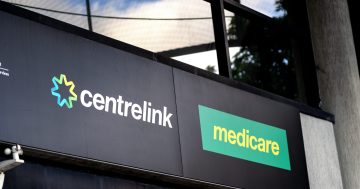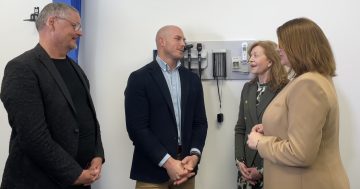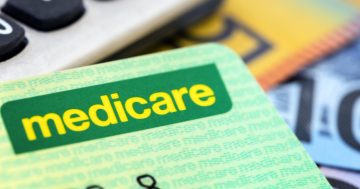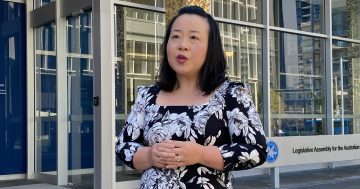
Bulk billing continues to decline and GPs are calling for greater government investment in primary care. Photo: File.
Finding a Canberra general practitioner who bulk bills has become even harder, according to a new survey of clinics in the ACT.
Bulk-billing rates in the ACT have long been declining but national healthcare directory Cleanbill has found a further deterioration, although its methodology does not allow for the partial or selective bulk billing that many clinics practise.
Its first survey, taken at the start of 2023, asked clinics whether they bulk bill all patients and found only 5.3 per cent did.
The next survey, taken in November last year when Federal Government incentives came into play, found just 3.8 per cent bulk billed all patients. Only three clinics of the 87 called bulk billed all patients: Kambah Medical Centre, Ngunnawal General Practice and Healthfont Medical Centre in Macquarie.
Out-of-pocket costs, or the gap between what Medicare covers and the doctor charges, had increased from $49.05 to $49.79.
Nationally, the Cleanbill bulk-billing rate fell from 34.7 per cent to 23.6 per cent, while the gap increased 3 per cent from $40.45 to $41.68, based on contacting 6818 clinics.
Cleanbill says fewer than one in four Australian GP clinics currently offer bulk billing to all adults through Medicare, and 514 clinics that bulk billed all patients at the start of the year had stopped by November 2023.
It says of the 75 per cent of clinics that do not offer bulk billing to adults, patients now face average out-of-pocket costs in excess of $40 almost uniformly across the country, paid on top of the $41.40 Medicare rebate already provided for a standard, 15-minute consultation.
Founder James Gillespie said bulk billing was not dead yet, but the trend was unsustainable.
“What we’ve seen is not just clinics dropping out of bulk billing, but a lot of bulk-billing clinics have been single doctor clinics, and as those GPs retire, we also see those clinics close down,” he said.
In November, the government tripled the bulk-billing incentive for Commonwealth concession card holders and patients aged under 16 years of age in a bid to arrest the decline.
But Mr Gillespie said this was not reflected in the survey findings, although clinics had reported already adopting the updated Medicare rebate so there should have been some effects from the incentives.
He said Cleanbill would also release a breakdown by electorate of bulk billing based on the November survey.
Royal Australian College of General Practitioners president Dr Nicole Higgins said the figures didn’t tell the whole story because GPs did choose to bulk bill their most vulnerable patients.
Dr Higgins said the national bulk-billing rate was still quite high at just under 80 per cent and the ACT was more like 51 per cent, but the Cleanbill results did reflect the decade-long neglect of general practice by successive governments.
She said Medicare rebates had, in effect, been frozen for the past 10 years and had not kept pace with the cost of providing care.
“Costs have risen and practices have had to make the choice between continuing to bulk bill and keeping their doors open,” Dr Higgins said.
She said there had not been enough time to assess whether the government incentives had had an impact, but a rethinking of healthcare was needed.
“It will slow the decline in bulk billing in those groups, but for those who are not part of that, the gap has increased,” Dr Higgins said.
The government needed to go back to the original aims of Medicare and invest in primary healthcare instead of spending most health funding on hospitals treating people who were already unwell.
“What we do need is to flip the system around,” she said.
“GPs are only 6.5 per cent of the healthcare budget. If we invest in GPs then we keep people healthier, living longer and out of hospitals.
“At the moment, we’ve got a sick system and we put lots of money into hospitals when people are already unwell versus frontloading at the start and making sure people stay well.”
Dr Higgins said the ACT situation would only worsen if the ACT Government persisted in pursuing practices for payroll tax.
She called it a double whammy that would reduce bulk billing and increase the payment gap.
“It risks reducing access to care,” she said.
“We’re calling on the ACT Government not to tax Medicare, that’s what the payroll tax is doing.”
GPs can gain a two-year exemption from having to pay payroll tax if they bulk bill 65 per cent of all patients, but only a small number of practices will be able to do that.





















